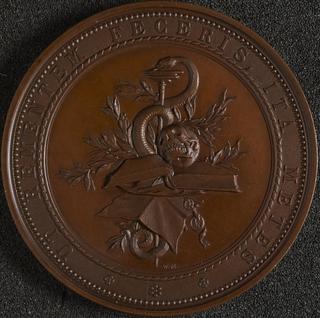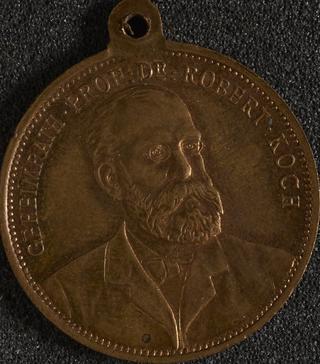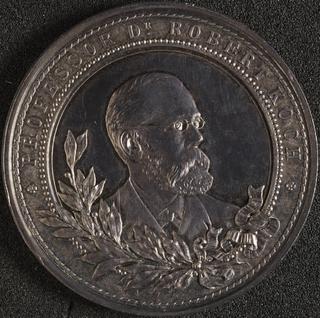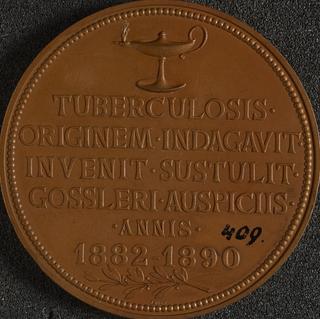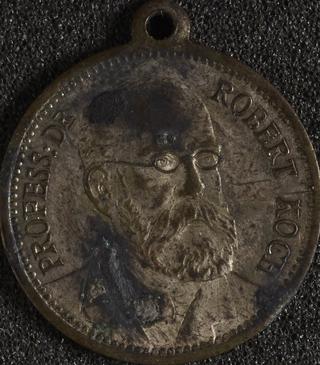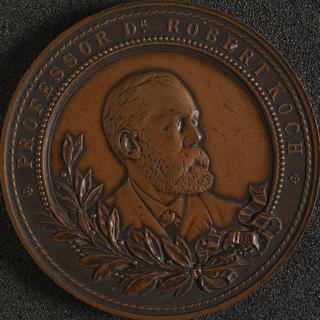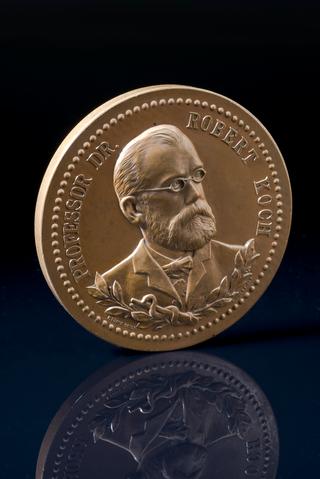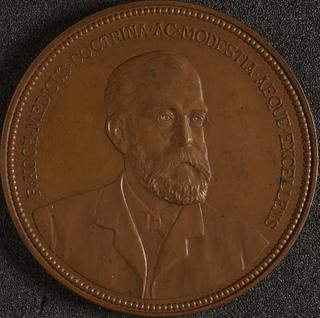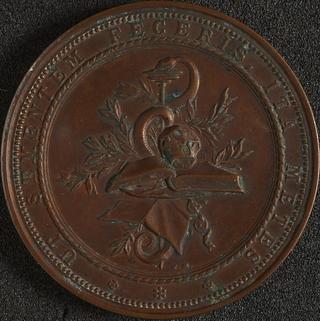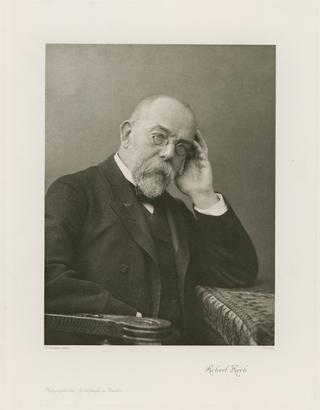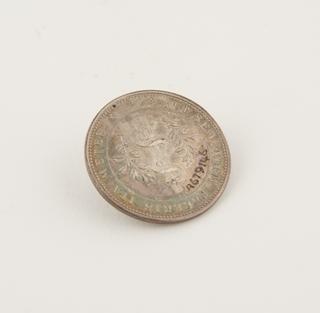
Robert Koch 1843 - 1910
- occupation:
- Microbiologist
- Nationality:
- German
- born in:
- Clausthal-Zellerfeld, Braunschweig, Lower Saxony, Germany
The German doctor Robert Koch is considered the founder of modern bacteriology. His discoveries made a significant contribution to the development of the first ‘magic bullets’ - chemicals developed to attack specific bacteria - and Koch was awarded a Nobel Prize in 1905.
More
Koch developed a new experimental method to test whether a particular micro-organism is the cause of a disease. Building on Pasteur's work on germ theory, Koch used experiments to prove that the bacterium Bacillus anthracis was the cause of anthrax - the bacterium could be observed in the tissue of anthrax victims. He extracted this bacterium from a sheep which had died of anthrax, grew it and injected a mouse with it. The mouse developed the disease as well. Koch repeated this process over 20 generations of mice, before he announced in 1876 that he had proved this bacterium caused anthrax.
Koch continued to improve his methods and techniques. By solidifying liquids such as broth with gelatine and agar, for instance, he created a solid medium for growing bacteria which was easier to handle than the liquids used by Pasteur. Koch's assistant Julius Richard Petri (1852-1921) developed the Petri dish, which made the observation of bacteria even easier.
Koch and his team also developed ways of staining bacteria to improve the bacteria’s visibility under the microscope, and were able to identify the bacterial causes of tuberculosis (1882) and cholera (1883). Adopting Koch's method, other researchers were able to identify the bacteria that caused diseases such as typhus (1880), tetanus (1884) and the plague (1894).
Key dates:
1866- graduated from University of Gottingen
1870-1871 - served in the Franco-Prussian war
1876 - published findings on anthrax
1880-appointed to the Imperial Health Office
1882 - discovers the tuberculosis bacillus
1883 - studied cholera in Egypt with Pasteur
1885 - professor of hygiene at University of Berlin
1891 - head of the newly created Institute of Infectious diseases
1890 - 'discovers' tuberculin, formulates Koch's postulates
1904 - resigns from the Institute, spends last years studying rinderpest, bubonic plague, malaria and sleeping sickness
1905 - won Nobel prize for Medicine
